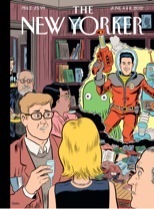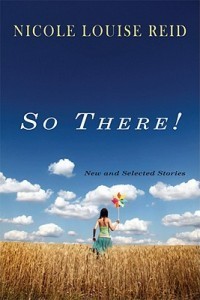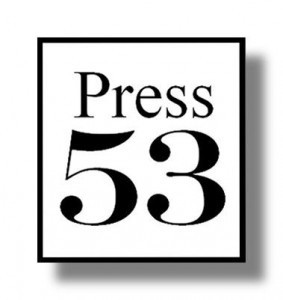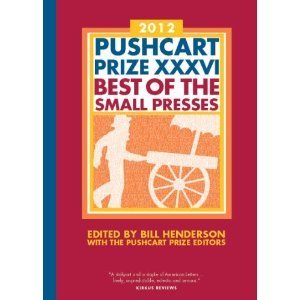Clifford Garstang's Blog, page 102
June 6, 2012
The New Yorker: “My Internet” by Jonathan Lethem
 June 4, 2012: “My Internet” by Jonathan Lethem
June 4, 2012: “My Internet” by Jonathan Lethem
This is an odd, very short story, from the point of view of someone who has developed an Internet within the Internet, one that is limited to 100 users, and has secretly developed another Internet within that, limited to just one. He speaks of a leader who foresaw the future and chose 100 elites to participate in the private Internet. The public Internet he finds confusing. But lately, he says, he’s “felt the urge for a deeper foray, the need for a more profound exclusion” and this has lead to the creation of his own Internet.
The irony, it seems to me, is that an Internet of one’s own is simply a return to the days before the Internet, when information wasn’t so easily shared and you only know what you know, not what everyone else knows.
Why this makes a short story that The New Yorker wanted to publish isn’t clear to me.
June 5, 2012
2012 Pushcart Prize Ranking — Fiction
Note: this post originally appeared on November 10, 2011 on the old Perpetual Folly site.
It is that time of year again. My copy of the 2012 Pushcart Prize Anthology arrived in the mail yesterday and I have been updating the rankings. I will start with the list for Fiction. The updated Non-fiction list is here.
I feel compelled every year to offer a disclaimer for the list. I originally created it in order to aid my own efforts at targeting my submissions of short stories to literary magazines. I used the Pushcart Prize because I felt that it represented the broadest range of magazines among the annual prizes (including Best American Short Stories and the O. Henry Awards).
My method is straightforward. I use a ten-year rolling database and award points to magazines for the prizes awarded and fewer points for each special mention. I don’t go further back than ten years because it seems to me that what is relevant is the current success of the magazines, not their storied past. Also, the further back we go, the more defunct magazines we find, and that’s not terribly helpful. Some have argued that a five-year period should be chosen instead. That seems too small a sample. When only 19 or 20 prizes are awarded in fiction each year, I think ten years provides a clearer picture of a magazine’s success.
Some people don’t like rankings at all, and I understand that. This ranking, however, is as objective as I can make it. The Pushcart Prize itself is subjective, of course, but that’s an entirely different question.
A note on symbols. I have marked magazines that I believe to have ceased publication with ©. Several magazines have a (?) by their name which means I can’t find a website for them. Please leave any corrections in the comments.
What is notable about this year’s list? Here are some observations:
Ploughshares maintains a sizable lead
Tin House moves into 2nd place, jumping over Conjunctions and Zoetrope, which are tied for 3rd
Georgia Review, on top of the charts for non-fiction, climbs 5 spots to #6, and Paris Review falls into a tie for 9th with the defunct Ontario Review, while Epoch drops out of the top ten.
Both One Story and A Public Space make big moves up on the back of a double win for each (matched by Georgia Review)
So, here is the list:
Pushcart Prize Ranking (Fiction) for 2012
2012
Magazine
2012 Score
1
103
2
74
3
72
3
72
5
63
6
54
7
50
8
48
9
46
9
46
11
45
12
42
12
42
14
41
15
40
16
34
16
34
18
33
19
30
19
30
19
30
19
30
23
29
23
29
25
28
26
27
27
23
28
22
28
22
30
21
30
21
32
20
33
19
34
18
35
17
36
16
37
15
38
14
39
13
39
13
39
13
39
13
43
11
43
11
43
11
43
11
43
11
48
10
48
10
50
9
50
9
50
9
50
9
54
8
54
8
54
8
57
7
57
7
57
Speakeasy ©
7
57
7
61
6
61
6
61
6
61
6
61
6
61
News from the Republic of Letters
6
61
6
61
6
69
5
69
Bridge ©
5
69
5
69
5
69
5
69
5
69
5
69
5
69
5
69
5
69
5
80
4
80
4
80
4
80
4
80
4
80
4
80
4
80
4
88
3
88
3
88
3
88
3
88
3
88
3
88
3
88
3
88
3
88
3
88
3
88
3
88
3
101
2
101
2
101
2
101
2
101
2
101
2
101
2
101
2
101
2
101
2
101
2
101
2
101
2
101
2
101
2
101
2
101
2
101
2
101
2
101
2
101
2
101
2
101
2
101
2
101
2
101
2
101
2
101
2
101
2
101
2
101
2
101
Timber Creek Review (?)
2
101
2
134
Amazon Shorts ©
1
134
Antietam Review ©
1
134
1
134
1
134
1
134
1
134
1
134
1
134
1
134
1
134
1
134
1
134
1
134
1
134
Canio’s Editions (?)
1
134
1
134
1
134
1
134
1
134
1
134
1
134
1
134
1
134
1
134
1
134
1
134
1
134
Eggemoggin Reach Review (?)
1
134
1
134
EWU Press ©
1
134
1
134
1
134
1
134
1
134
1
134
1
134
1
134
1
134
1
134
Hampton Shorts (?)
1
134
1
134
1
134
1
134
1
134
1
134
1
134
1
134
1
134
1
134
1
134
1
134
1
134
1
134
Lynx Eye ©
1
134
1
134
Margin (?)
1
134
1
134
1
134
1
134
1
134
1
134
1
134
Nebraska Review ©
1
134
1
134
1
134
1
134
1
134
1
134
Northern Lights (?)
1
134
1
134
1
134
1
134
1
134
1
134
1
134
1
134
1
134
1
134
1
134
1
134
1
134
1
134
RBS Gazette (?)
1
134
1
134
1
134
1
134
1
134
1
134
1
134
Small Town (?)
1
134
1
134
1
134
1
134
1
134
1
134
1
134
Stolen Time Press (?)
1
134
1
134
1
134
1
134
1
134
1
134
Transformation (?)
1
134
1
134
1
134
1
134
Words of Wisdom (?)
1
134
1
134
Xconnect (?)
1
134
1
134
1
134
1
134
1
134
1
2012 Pushcart Prize Ranking — Poetry
Note: this post first appeared January 12, 2012 on the old Perpetual Folly site.
By now, my ranking of literary magazines is well known among writers. I began the ranking several years ago as I attempted to prioritize my submissions of short stories. I analyzed ten years of Pushcart Prize anthologies and ranked the magazines based on how many prizes and special mentions they had earned using a simple formula to come up with a score. That was the only factor in my ranking, attempting to keep it as objective as possible. I updated the ranking each year when the new anthology was released, adding the new data while dropping the data that was more than ten years old.
At the end of 2011, when I updated the Fiction rankings, I did the analysis for Nonfiction as well, and came up with a separate ranking. Both of these lists, as well as the Fiction rankings from prior years, are linked in the sidebar at right.
And now, finally, I’ve applied the analysis to Poetry.
Some people don’t like rankings, and I can sympathize with their view. But I maintain that the Pushcart Prize is a reasonable proxy for quality, and I think many writers hope to place their work in the best possible magazine. If I were a poet, I’d want to see my work in Poetry, the clear “winner” in this ranking. But I also acknowledge that the Pushcart Press has been slow to recognize the work that is appearing in online magazines, and these magazines, some of which are excellent, are under-represented on the list. Writers should keep this in mind.
Are there any surprises here? You tell me. Poetry is clearly dominant, and American Poetry Review is a strong second. But many of the remaining top twenty-five also rank highly in the other genres.
For whatever it’s worth to you, here it is:
Pushcart Prize Ranking (Poetry) for 2012
2012
Magazine
2012 Score
1
108
2
74
3
65
4
59
5
46
6
45
7
42
8
41
9
40
10
36
11
33
12
32
13
30
14
25
15
21
15
21
15
21
18
20
19
19
20
17
20
17
20
17
23
16
24
15
24
15
24
15
27
14
28
13
28
13
28
13
28
13
28
13
33
12
33
12
33
12
33
12
37
11
37
11
37
11
37
11
37
11
37
11
37
11
37
11
37
11
37
11
37
11
37
11
49
10
49
10
49
10
49
10
49
10
49
Lyric (?)
10
49
10
49
10
49
10
49
10
49
10
49
10
61
8
61
8
61
8
64
7
64
7
64
7
64
7
64
7
64
7
64
7
64
7
72
6
72
6
72
6
72
6
72
6
72
Margie ©
6
72
6
72
6
72
6
72
6
72
6
72
6
72
6
72
6
72
6
72
6
88
5
88
5
88
5
88
5
88
5
88
5
88
Cleveland State Univ. Poetry Ctr.
5
88
5
88
5
88
5
88
5
88
5
88
5
88
5
88
5
88
5
88
5
88
5
88
5
88
5
88
5
88
5
88
5
88
5
88
5
88
5
88
5
88
5
88
5
88
5
88
5
88
5
88
5
88
5
88
5
88
5
88
5
88
5
88
5
88
5
88
5
88
5
88
5
88
5
88
5
88
5
88
5
88
Triplopia (?)
5
88
5
88
5
88
5
88
5
88
5
88
Verse Press ©
5
88
5
88
5
144
4
144
4
144
4
147
3
147
3
147
3
147
3
147
University of Pittsburgh Press
3
152
2
152
2
152
2
152
2
152
2
152
2
158
1
158
1
158
1
158
1
158
1
158
1
158
1
158
1
158
1
158
1
158
1
158
1
158
Cape Cod Voice (?)
1
158
1
158
1
158
1
158
1
158
1
158
1
158
1
158
1
158
1
158
Frostproof Review ©
1
158
1
158
1
158
1
158
1
158
Haven Chronicles (?)
1
158
1
158
1
158
1
158
1
158
1
158
1
158
1
158
Kentuckians for the Commonwealth
1
158
1
158
1
158
1
158
1
158
Lynx House Press (?)
1
158
1
158
1
158
1
158
1
158
1
158
1
158
1
158
1
158
1
158
1
158
1
158
1
158
1
158
1
158
River City (?)
1
158
1
158
1
158
1
158
Speakeasy ©
1
158
1
158
1
158
Thunder’s Mouth Press ©
1
158
1
158
1
158
1
158
1
158
1
158
1
158
1
158
Xantippe (?)
1
158
1
158
1
158
1
158
1
158
1
158
1
158
1
158
1
158
1
158
1
158
Roundhouse Press (?)
1
158
1
2012 Pushcart Prize Ranking — Nonfiction
Note: This post originally appeared on the old Perpetual Folly site on November 10, 2011.
As you may know, I recently supplemented my annual Pushcart Prize Ranking for Fiction with a new list–the Pushcart Prize Ranking for Nonfiction. Like the fiction list, each magazine recognized over the past ten years (2003-2012) is awarded points for the number of prizes it has won and fewer points for the number of special mentions. The numbers are totaled and the ranking is generated.
While the Pushcart Prize is subjective, my ranking is entirely objective. I find it a useful resource for comparing magazines. Others have told me that they do also. Use it as you see fit.
As with the fiction list (this year’s list can be found here), magazines that have ceased publication are marked with © and magazines for which I have no information or cannot find a website are marked with (?). If you have additional information for me, I’d appreciate it if you could leave a comment below.
What have we learned in this update? Not much. The top ten shuffled a little, but remained the same.
Orion kept pace with Georgia Review because they each earned one prize and two special mentions, but Georgia Review actually lost a little ground when the data for 2002 was removed. Hudson Review dropped in the rankings; Harvard Review and n+1 both jumped. Otherwise, there weren’t a lot of big movers.
Nonfiction Pushcart Prize Ranking for 2012
2012
Magazine
2012 Score
1
72
2
58
3
42
4
38
5
37
5
37
7
36
8
35
8
35
8
35
11
29
11
29
12
28
14
26
15
24
16
19
16
19
18
18
19
16
19
16
20
15
20
15
20
15
20
15
20
15
20
15
20
15
27
14
27
14
30
13
30
13
32
12
32
12
32
12
34
11
34
Speakeasy ©
11
34
11
34
11
39
10
39
10
39
10
42
9
43
8
43
8
43
8
45
7
45
7
45
7
45
7
50
6
50
6
52
5
52
5
52
5
52
5
52
5
52
5
52
5
52
5
52
5
52
5
52
5
52
5
52
5
52
5
66
4
66
4
68
3
68
3
68
3
68
3
68
3
68
3
68
3
68
3
76
2
76
2
76
2
76
Asian American Writers Workshop
2
76
2
76
2
76
2
76
2
76
2
76
2
76
2
76
2
76
2
76
2
76
2
76
2
76
2
76
2
76
2
76
2
76
2
76
2
76
2
76
2
100
1
100
1
100
1
100
1
100
1
100
1
100
1
100
1
100
1
100
1
100
1
100
1
100
1
100
1
100
1
100
1
100
1
100
1
100
1
100
1
100
Divide ?
1
100
1
100
1
100
1
100
1
100
1
100
1
100
1
100
1
100
1
100
1
100
1
100
1
100
1
100
1
100
1
100
1
100
Make ?
1
100
1
100
1
100
1
100
1
100
1
100
1
100
1
100
1
100
Northern Lights (?)
1
100
1
100
1
100
1
100
1
100
1
100
Palo Alto Review ?
1
100
1
100
1
100
1
100
1
100
1
100
1
100
1
100
1
100
1
100
1
100
1
100
1
100
1
100
1
100
1
100
1
100
1
100
1
100
1
100
1
100
University of Notre Dame Press
1
100
1
100
1
100
1
100
1
100
1
100
1
100
1
100
1
100
1
June 4, 2012
Book Review: So There! by Nicole Louise Reid

So There!
Stephen F. Austin State University Press
The stories in this surprising, slim collection by Nicole Louise Reid occupy a narrow, rich range. They share a lyrical, concise language, but they also explore common territory, the dark and deeply emotional side of childbirth and parenting. The result is a sometimes disturbing, but ultimately satisfying, reading experience.
First time through, pay attention to the children, especially the babies. They’re everywhere. In “To the Surface for Air,” a young woman who has recently given birth tells the story of watching a river dolphin who repeatedly tried to bring its dead baby to the surface. In “Two Swimmy Fishes,” a woman gives birth to twins. They don’t survive, but the woman names them and behaves as if they were alive. In “Pearl in a Pocket,” the narrator’s mother is pregnant again, after many stillborn female babies. And in “So There” (without the exclamation point of the book’s title), the narrator’s mother gives birth to a baby that may or may not be her husband’s, but the child does not live—whether killed by the mother or father is not clear.
Even the children who survive their infancy struggle, thanks to their parents. In the book’s opening story, “If You Must Know,” Pearl—whose father left home and is living with his girlfriend on a houseboat—believes she has become host to a cicada that entered her while she was making love to Wallace. Later, when Wallace returns to capitalize on her notoriety, Pearl excises the bug, which is surely a metaphor for an abortion or stillbirth. In “Glimpses of Underthings,” Agnes is a tease to the high school boys, partly in reaction to the odd behavior of her mother and her lecherous father. In “So There,” the narrator’s flirtatious mother loves to torture her jealous husband, driving her daughter further away.
Next time through the book, focus on the language and the fresh word choice. In “Like Paper Snow,” a story about a sad childhood memory: “To know which morning is the dream—that yellow halting years ago or nearly every woken day since—I’ve come back to this small, white room of washing and waiting.” In “Someone Like Me”: “. . . I barely listened to Caroline, barely noticed anything around me, except for the honeysuckle fearlessly climbing the kudzu sweet with hope.” In “Careless Fish”: “There are practicalities, too. Of clothing and hair. Of nakedness and moonlight. In a new moon, maybe I’d pretend he couldn’t see me. But only a sliver bitten out of the night is too much light.”
These stories deserve close attention. And while they are dark, offering little in the way of redemption, each one is a finely crafted work of art and a deep study of what makes us who we are.
Books for Soldiers — Press 53

Here’s a great idea. Go to Press 53. Browse through their catalog of books and buy one or two or three. Like my book, for example, a collection of linked short stories that has won some awards, In an Uncharted Country.
When you do that between now and June 14 (Flag Day), Press 53 will send a book to a soldier. No catch. No extra cost to you. Check out Books for Soldiers. And then buy some books.
June 1, 2012
The New Yorker: “The Republic of Empathy” by Sam Lipsyte

June 4, 2012: “The Republic of Empathy” by Sam Lipsyte
Although this is dubbed the science fiction issue, I’ll try to ignore that. Individually the several stories in this twofer (June 4 and 11) are not particularly more off-the-wall than many other stories TNY publishes during the year. As a whole, though, they’re a little hard to swallow. But let’s take them one at a time.
First up is Sam Lipsyte’s “The Republic of Empathy,” set at some point in the future, apparently. Like Lipsyte’s last story in the magazine, this one doesn’t do much for me. Structurally, it’s told in a series of short scenes with shifting points of view. We begin with William, whose wife wanted another baby although he’s not so sure. At work he lets off steam with Gregory, and they smoke a joint on the roof, where they witness a fight on the roof of the next building that results in one man falling to his death. Then William dreams he has another son. He wakes up and it turns out he does have another son.
Then we shift to Danny’s point of view. Danny, apparently, is the son of Gregory and this scene predates the previous one. And the scene is written as if Danny is working on a memoir. Then we get Leon and Fresko, the two men who were fighting on the roof, except it turns out they weren’t fighting. Then it’s Zach’s turn. He meets Gregory and we get more of his story. The next section is where the science fiction comes in. It’s told from Drone Sister’s point of view as she’s approaching her target, which is . . . Then, finally, we get a section from Peg’s point of view. She’s William’s wife and she’s reporting on what happened to William.
If there’s a point, I don’t see it. (The Q&A with Sam Lipsyte doesn’t shed much light on things.)
May 31, 2012
Welcome to the New Perpetual Folly

Welcome to the NEW Perpetual Folly!
For years I have been blogging at PerpetualFolly.blogspot.com. You can now find me here at PerpetualFolly.com. Please forgive the temporary disorganization . . .
Blog Migration
 You may have noticed that I haven't been posting much lately. That's partly because I've been swamped and partly because I've been developing a new integrated website and blog. Beginning today, Perpetual Folly can be found at a new location:
You may have noticed that I haven't been posting much lately. That's partly because I've been swamped and partly because I've been developing a new integrated website and blog. Beginning today, Perpetual Folly can be found at a new location:PerpetualFolly.com
That site, which is integrated with my website, CliffordGarstang.com, is still under construction, but is now functional. I need to do some organization in the new place, but I hope you will visit me there.
May 27, 2012
Tips for Writers: "Alright" is not all right.
 I don't know where "alright" came from, but it's not standard and should not be used in writing. I see it in submissions and student work all the time, though, so I'm afraid that it has gained some level acceptance. Not with me, though.
I don't know where "alright" came from, but it's not standard and should not be used in writing. I see it in submissions and student work all the time, though, so I'm afraid that it has gained some level acceptance. Not with me, though.According to Garner's Modern American Usage, "Alright" for "all right" has never been accepted as standard in American English (although Garner notes that Gertrude Stein used it--"not much of a recommendation," he says). Apparently it is more common in British English.
Garner says no to "alright," and so do I.




